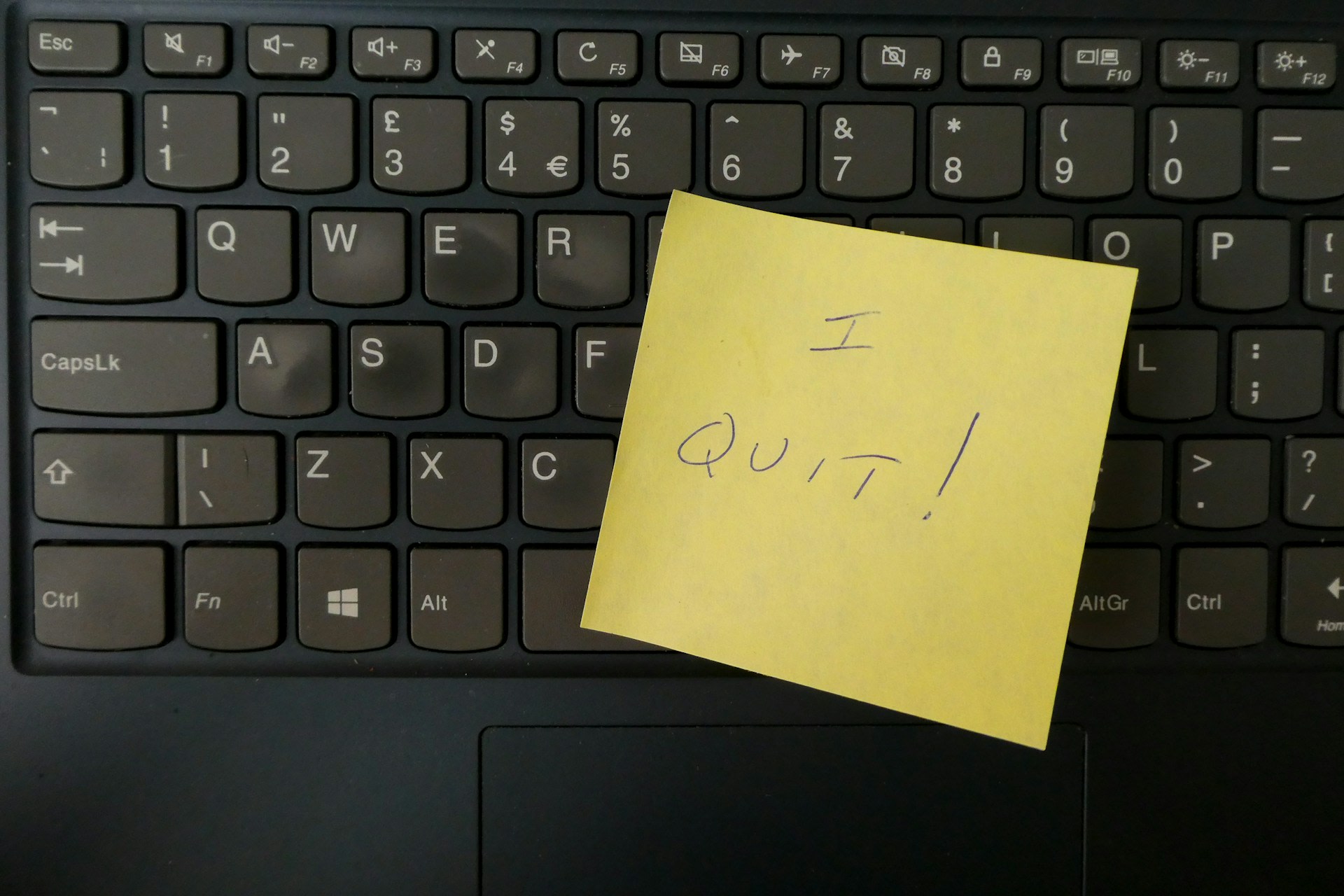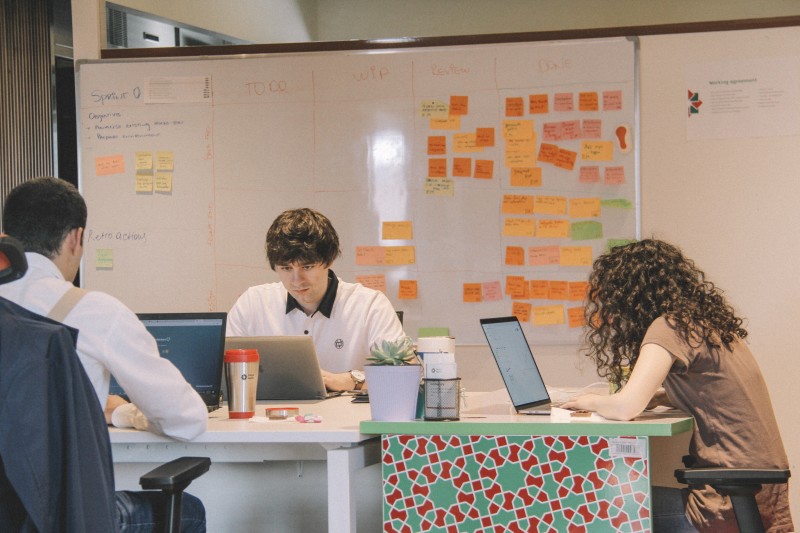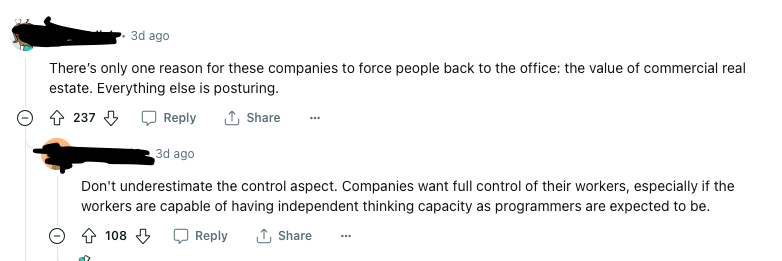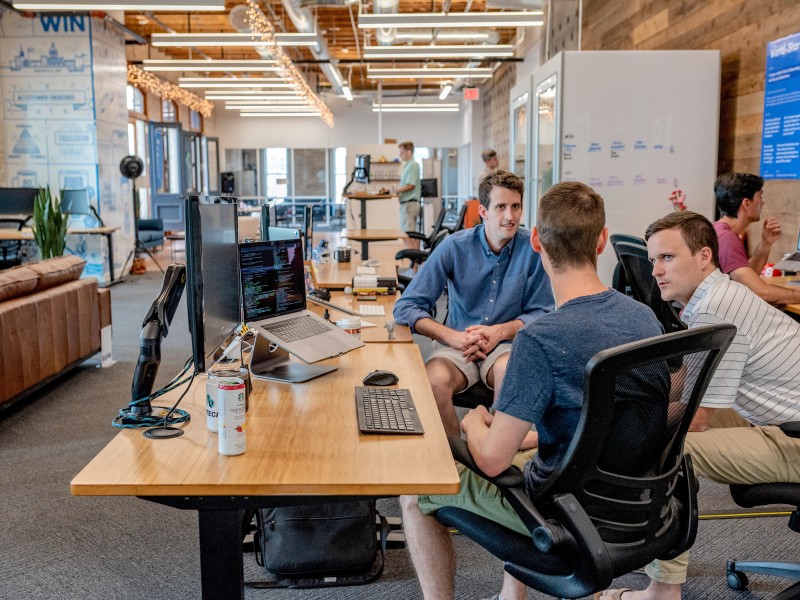Navigating the Great Resignation: A Closer Look at Why Product Managers Are Leaving Their Jobs

A surprising trend is emerging in the midst of an economic crisis: product managers, particularly those in senior-level roles, are increasingly looking to quit their jobs.
Recent data from Payscale shows a staggering 66% of them are planning to move on despite commanding a median annual salary of $144,000. Let’s take a closer look at what’s causing this movement, and how it can help shape product leadership in 2024.

High salaries, higher stress
It's easy to assume that a hefty paycheck is enough to keep job satisfaction high. But Senior Product Managers everywhere are facing unique challenges that even a six-figure salary can't fix.
The tech industry, notorious for high-profile layoffs, has led many to seek more stable opportunities. PMs often grapple with dwindling resources and increased workloads, intensifying stress and leading to burnout. It's a reminder that financial compensation alone isn't the silver bullet for employee retention. (Throwing money at the problem doesn’t actually fix things, who knew?)
We also need to take into consideration the current economic crisis. The tech industry is particularly susceptible to broader economic and industry trends, including market fluctuations, technological advancements, and changing consumer behaviors. Senior Product Managers must navigate these complexities, often without sufficient support and resources, adding to the stress and uncertainty of their roles.
Loyalty is no longer a reason for many, either. Stronger boundaries are being set in creating better work/life balance for many millennials and Gen Z’s – and they have made it clear that loyalty is a two-way street. Many are looking for development and upskill opportunities, transparent leadership, and flexibility in work location.

Adapting to new norms
As remote and hybrid work models become more prevalent, adapting to these new norms is crucial. Employers must recognize and address the unique challenges these models present, including managing remote teams effectively, ensuring equitable treatment of remote and in-office employees, and providing the necessary tools and resources for remote work.
As a recent Reddit thread pointed out, many believe threats to go back to the office are unfair.

The role of leadership
Poor leadership can significantly contribute to the stress and dissatisfaction experienced by Senior Product Managers. Leaders who fail to create an environment of psychological safety, vulnerability, and openness to learning can inadvertently escalate workplace stress.
Conversely, good leadership – marked by empathy, transparent communication, and a genuine investment in team well-being – can be a game changer. Driving teams to achieve objectives shouldn’t be the only goal, a focus is also needed in nurturing a supportive and collaborative culture.
Good leadership is about:
Creating a psychologically safe space where employees feel comfortable sharing ideas and concerns without fear of repercussion.
Demonstrating vulnerability and openness, acknowledging mistakes and learning from them, thereby creating a culture of continuous improvement.
Being transparent and communicative, especially in times of uncertainty, to build trust and reduce anxiety among team members.
By establishing environments of trust, safety, and growth, we can create spaces where top talent are not only eager to join, but inspired to stay.

Looking into the future
The tech industry, and particularly the role of Senior Product Managers, stands at a crossroads. As we navigate through economic uncertainties and changing workplace dynamics, the focus must shift to attracting and retaining top talent through impactful leadership and supportive work environments.
As salary transparency becomes more prevalent and employees gain leverage to negotiate better terms, companies must reevaluate their strategies. Ensuring fair pay, providing growth opportunities, and most importantly, cultivating a healthy and supportive workplace culture are key to retaining top talent.
The great resignation among Senior Product Managers is a clear signal that it's time to reexamine our approach to leadership and workplace culture. By creating environments of trust, safety, and growth, we can turn the tide and create spaces where high-caliber professionals not only want to join but are inspired to stay.

Andrea Saez

Read also

Experience the new way of doing product management

Experience the new way of doing product management






